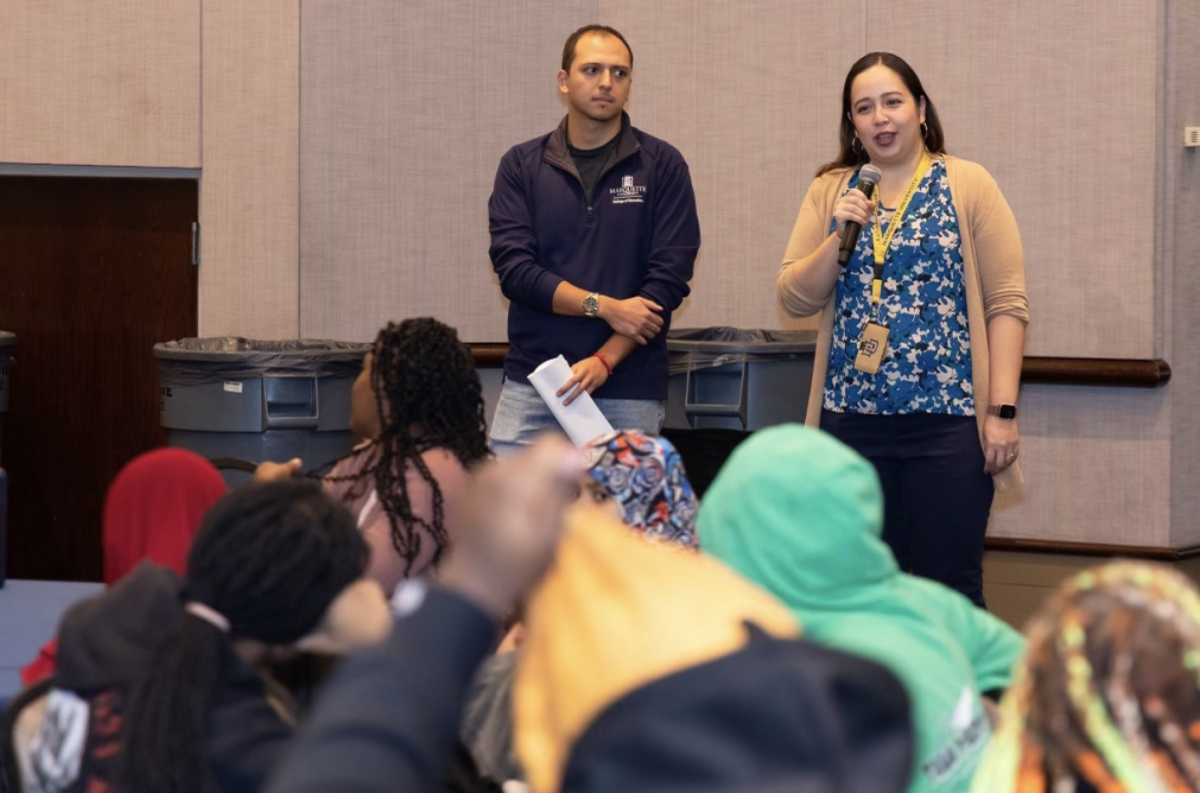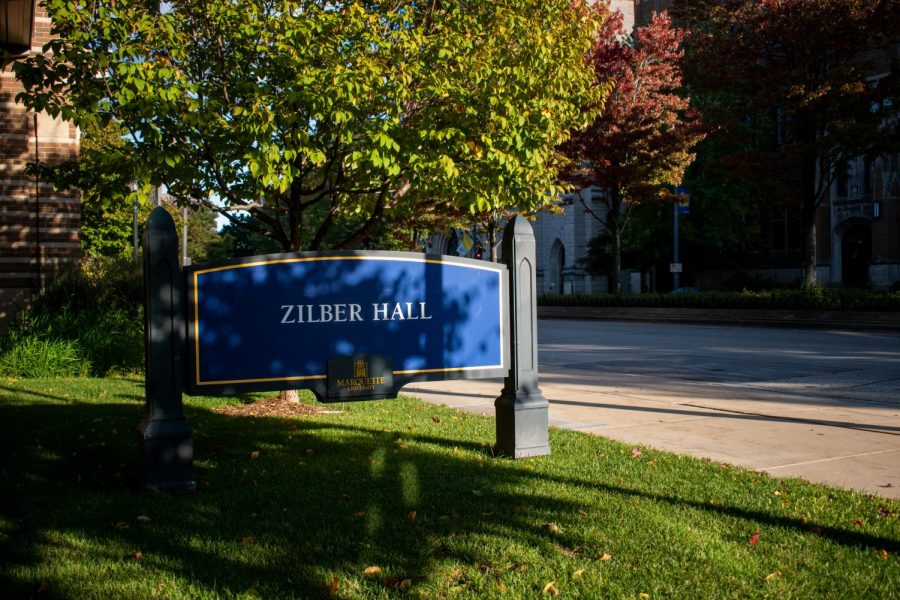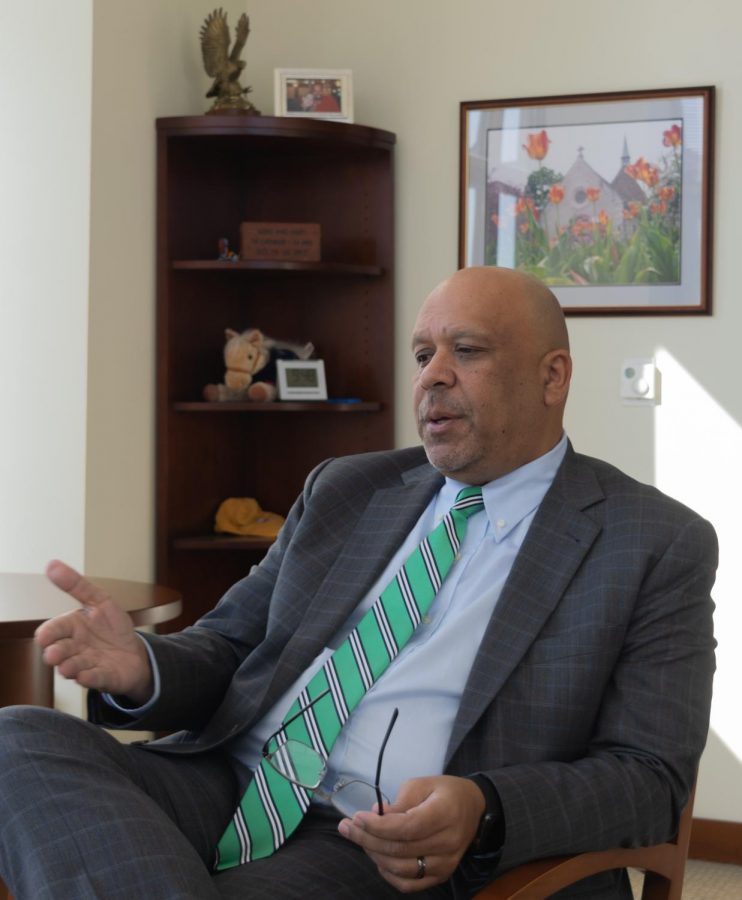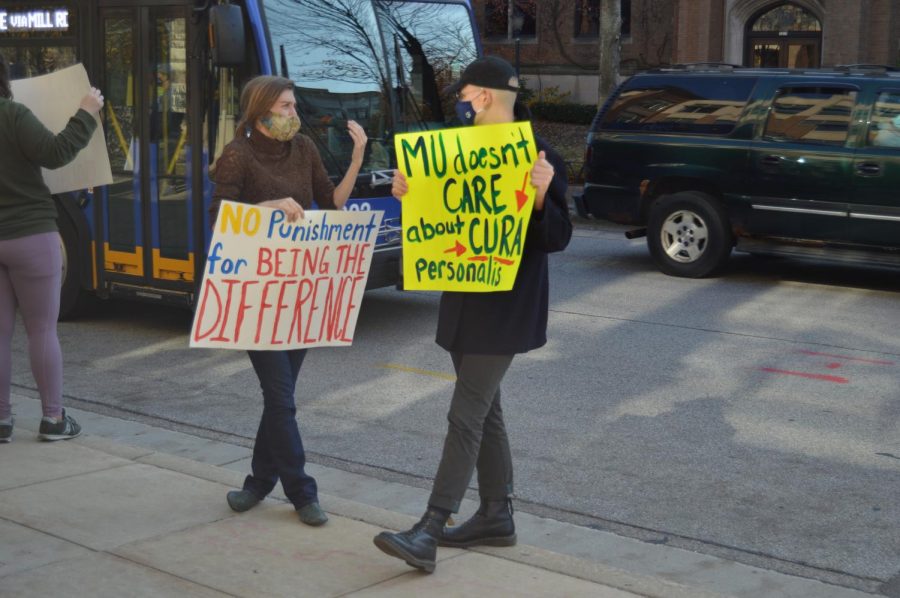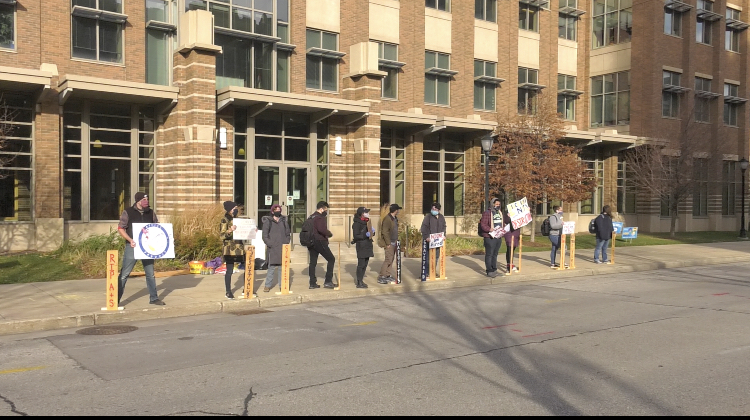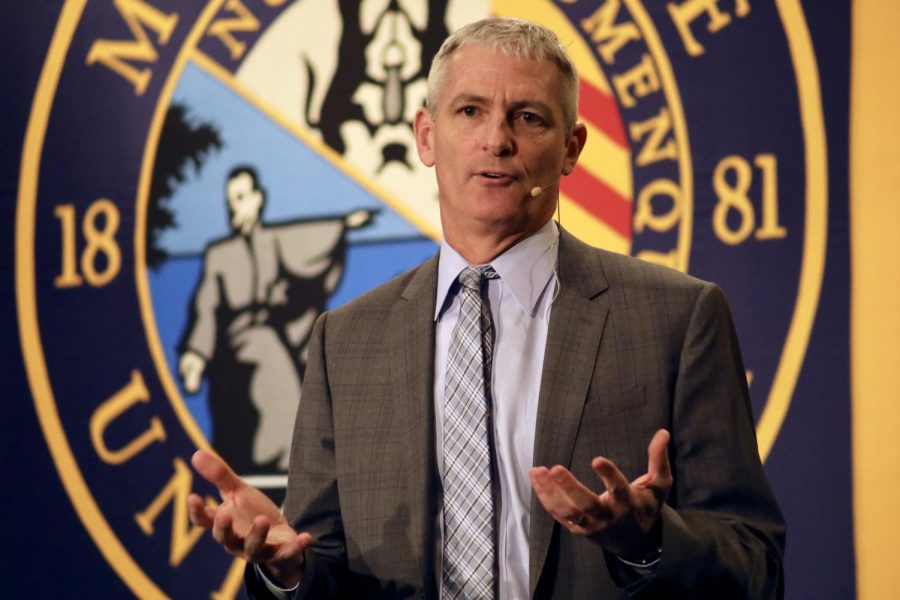Sitting in a multipurpose room in Schroeder Complex, faculty and staff members stared at a number on the screen.
It read $1 million. It was the deficit, or budget shortfall, that the College of Education had incurred over the last five years.
That’s what acting provost Kimo Ah Yun told them in a meeting Friday morning.
“We had not seen this number before,” a College of Education faculty member told the Marquette Wire. “We weren’t quite sure how it was calculated, either.”
After learning about the deficit, a group of nearly 10 faculty members decided to form an internal committee dedicated to investigating the sources of the university’s deficit calculation. They plan to gather information before approaching administrators.
Faculty members in the College of Education who attended Friday’s meeting asked to remain anonymous in this story. The request was made and granted due to sensitivity regarding layoffs and reorganization as part of the university’s cost management review process.
Marquette University President Michael Lovell recently announced 24 staff members were laid off, with 49 future and current vacancies not being filled, in a letter emailed to faculty and staff members.
It was a 2.5% cut of Marquette’s employees in preparation for the expected decline of college-age students in 2026. Nathan Grawe predicts the change in his book “Demographics and the Demand for Higher Education,” which Lovell cited in his letter. The decline is attributed to fewer births after the 2008 economic recession.
Lovell also said in the email that the College of Education’s structure will be part of the changes to anticipate the university’s decline in enrollment.
In an email addressed to College of Education faculty, staff and students, William Henk, dean of the college, said the evaluative process is primarily intended to examine the structure and leadership of the college.
“Be assured that our faculty and staff will make every effort to work with others across campus to help ensure that all decisions and outcomes resulting from the process are in the best interest of our students,” Henk said in the email.
He said all existing programs will continue to be offered exactly as they are now.
Brooke McArdle, a junior in the College of Education, said the email from the dean of the college was an attempt to give blanket reassurance, but she said she did not think it was effective.
“I think he’s acting off the fact that nobody knows,” McArdle said. “I think it’s hard to give a sense of reassurance when you don’t know what’s going on.”
Henk declined to comment on whether he attended the Sept. 13 meeting. Faculty members who spoke with the Marquette Wire said he did not attend, though it is unclear why.
Dean of the Graduate School Doug Woods attended the meeting to provide context regarding graduate education programs.
In Lovell’s email, he said the university will aim to “to achieve new efficiencies” in the college, describing the process as “inclusive.”
Friday’s meeting provided faculty and staff members in the College of Education with some insight as to what was meant in Lovell’s email. However, it left them with remaining questions and concerns moving forward.
Faculty members said they hope to be included in discussions and decisions about how the College of Education will be restructured.
One option, proposed by Ah Yun in Friday’s meeting, is to merge the College of Education with a different college on Marquette’s campus. The College of Education would become a subset of the other college, which Ah Yun suggested could be the College of Communication or Arts & Sciences.
Faculty members said Ah Yun seemed to be open to other suggestions about colleges and departments with which to merge.
The move was posed as a “money-saving measure” at Friday’s meeting, a faculty member told the Marquette Wire.
Ah Yun said a timeline has not been established to make any restructuring transition at this time.
“I asked the College of Education to think about the steps that need to be taken and what makes the most sense,” Ah Yun said.
Members of the College of Education are hoping university administrators will encourage and value their input during the ongoing review process.
“We want to be at the table. We want to be included,” one faculty member said. “We want to be included right away, rather than an afterthought.”
Another faculty member said they hope it is a “collaborative and deliberate process.”
“I think everyone wants to be very intentional and thoughtful,” another faculty member said. “People would be open to doing whatever would be best.”
One faculty member said the university seems to have the idea of a transparent process, but they said transparency “comes when it’s too late.”
Faculty members raised concerns that the reorganization process appeared to be rushed. They said they were able to ask questions during a discussion at the meeting and that they hope to have more time to evaluate the college’s options.
One faculty member said they believe a full academic year is needed to discern the best route forward.
Another aspect of Friday’s meeting included demographic information.
Ah Yun shared student enrollment data with faculty and staff Friday, which showed declining enrollment in the College of Education from 2010 to 2019, faculty members told the Marquette Wire.
In fall 2010, the College of Education had 439 undergraduate students enrolled, according to the Office of Institutional Research and Analysis. As of fall 2018, the college had 277 undergraduates enrolled. Fall 2019 data is not yet available.
While the decreasing enrollment leads to less tuition revenue, one faculty member said the College of Education should nonetheless be viewed as a valuable social change maker. They said teaching is the central heart of a Jesuit university’s mission.
“The provost said on Friday, bottom line, that the university is a business, and if that’s the case, I think that’s news to the Jesuits and the missional work,” the faculty member said.
Bella D’Agostino, a junior in the College of Education, said she first heard of the layoffs and reorganizational shifts in her English class from a peer.
“At first when I found out, I was really angry that they haven’t told us students anything,” D’Agostino said. “I’ve heard from the faculty that they know as much as we do, and it’s really concerning they aren’t consulting the people that are in the program.”
McArdle said the discussion of moving the College of Education into another college is not only a logistical issue, but also presents a pedagogical problem.
“We’re going to say that we are proponents of a Jesuit education, but if we are going to look at the root of a Jesuit education, it is literally education, not only educating ourselves, but educating the community,” McArdle said.
McArdle said she does not trust Ah Yun when he says any decisions will not affect students in the college.
“I trust that my accreditation and my transcripts will say ‘College of Education,’ but part of being a teacher is advocating for yourself first in order to advocate for students,” she said. “This is us advocating because the future of students, not only at Marquette but also the Milwaukee community, is at stake when we go back and say we are going to eliminate the College of Education.”
Jonathon Jimenez, a junior in the College of Education, and McArdle both said merging the College of Education into a different college as a school or department would leave education students taking core requirements they might not necessarily need for their career field. This could delay their tracks to graduation.
“When you start piling on all of these different requirements from a different college that isn’t necessarily devoted to your specific career choice, that poses problems for you,” McArdle said.
She said by having a college for education students, students are able to focus on their specific vocation.
“It’s important not to lose sight of how we shape teachers. If we amalgamate into another college, we will be losing sight to that,” McArdle said.
Jimenez attended the University Academic Senate meeting Monday at 3 p.m. in the Alumni Memorial Union. There, he asked Ah Yun questions about the state of the college.
“The core of that meeting was transparency and inclusivity,” Jimenez said. “We know with students that is not happening. Faculty at this meeting made their voices very loud and very apparent that they feel just as much as students … (that they are) not involved in (the) decision-making process.”
Jimenez said he felt his question was not adequately answered by Ah Yun, who referenced Friday’s meeting but did not discuss concrete steps forward.
“I talked with them through the process of how we got to the place where we are today,” Ah Yun said at the Senate meeting. “I explained to them that this notion of talking about reorganization has gone through years and years of the university and about how we needed to take the next steps to be able to function and move forward.”
D’Agostino said she feels like everyone in the College of Education is on edge and that everything is tense.
“Even though the program is small, people are in the education program because it’s Marquette’s education program,” she said.
A faculty member described the feeling among colleagues as “vulnerable.” They said reorganization efforts could identify redundancies of current staff in an updated system, which could lead to more layoffs of faculty and staff members.
Jimenez and McArdle have planned an open forum for this Friday in Schroeder Complex at 2:30 p.m. All are welcome to attend to speak more about the future of the College of Education, they said.
“(It has) not affected just us,” Jimenez said. “We aren’t the only ones disgruntled. There are a lot of people asking what is going on, and we are trying to help everyone answer that question.”
Sydney Czyzon contributed to this report.



